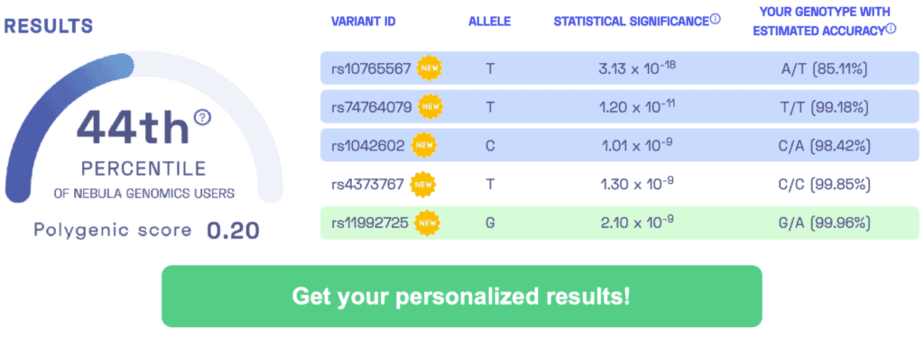STUDY TITLE: GWAS for male-pattern baldness identifies 71 susceptibility loci explaining 38% of the risk
SUMMARY: Identification of 71 genetic regions associated with male-pattern baldness.
OVERVIEW: Hair loss is an extremely common problem. In fact, by the age of 50, about 50% of men experience major hair thinning, ultimately leading to a bald region surrounded by hair in a horseshoe-like pattern. This is known as male-pattern baldness (MPB). MBP is a common, heritable disorder that is linked to testosterone levels and is often associated with serious health conditions, such as increased risk of prostate cancer, heart disease, and diabetes. However, the underlying genetic basis of MPB remains poorly understood. This genome-wide association study that examined the genomes of more than 70,000 men. The study identified 107 MPB-associated genetic variants across 71 genetic regions, 30 of which are novel. Collectively, these variants explain 38% of the heritability of MPB. Many of the discovered variants are within or near genes that play a role in hair growth and response of hair follicle cells to testosterone.
DID YOU KNOW? A common myth is that if you are male, MPB can be traced back to your maternal grandfather. However, this is not entirely accurate. One well-characterized gene related to MPB helps hair follicle cells detect testosterone, and testosterone is known to affect hair growth. This gene is located on the X chromosome, which means that for males, it is inherited from their mother. However, a number of studies, including this one, have highlighted that MPB is a polygenic disorder, meaning that there are a number of genes involved in MBP, many of which are not located on the sex chromosomes. [SOURCE]
SAMPLE RESULTS: Learn more about the Nebula Research Library.

MBP-ASSOCIATED VARIANTS: rs4827528, rs11087368, rs71530654, rs552649178, rs12203592, rs7542354, rs77410716, rs1422798, rs939963, rs11684254, rs7061504, rs34624408, rs550618068, rs4718886, rs919462, rs13021718, rs7680591, rs8085664, rs11593840, rs577845405, rs17833789, rs79593277, rs113436165, rs7642536, rs2064251, rs11578119, rs62433864, rs7349332, rs9803723, rs11037975, rs111668293, rs68088846, rs9692245, rs16863765, rs58788673, rs9398803, rs3781452, rs11249243, rs182973285, rs7974900, rs572756998, rs2149150, rs17265513, rs534591951, rs6788232, rs12902958, rs78448052, rs534855217, rs71421546, rs530010717, rs77767830, rs7976269, rs12214131, rs10930758, rs5934505, rs35892873, rs10888690, rs138773644, rs16830188, rs76972608, rs191212334, rs61784834, rs62146540, rs16877149, rs79811440, rs7164914, rs12752809, rs115182912, rs10225279, rs985546, rs35255777, rs76067940, rs12144907, rs9846246, rs2876167, rs201089181, rs59995943, rs77177529, rs73837363, rs13405699, rs200541723, rs29073, rs6752754, rs10923528, rs2256843, rs998245, rs1704529, rs72809171, rs12509636, rs551865390, rs10843003, rs2807691, rs16827770, rs12686549, rs844193, rs149801367, rs335145, rs10928235, rs111931356, rs7226979, rs11714208, rs9719620, rs2040432, rs70993471, rs417054, rs2706768
ADDITIONAL RESOURCES:
MPB
The Science of Hair Loss
WEEKLY UPDATE: January 10, 2020
